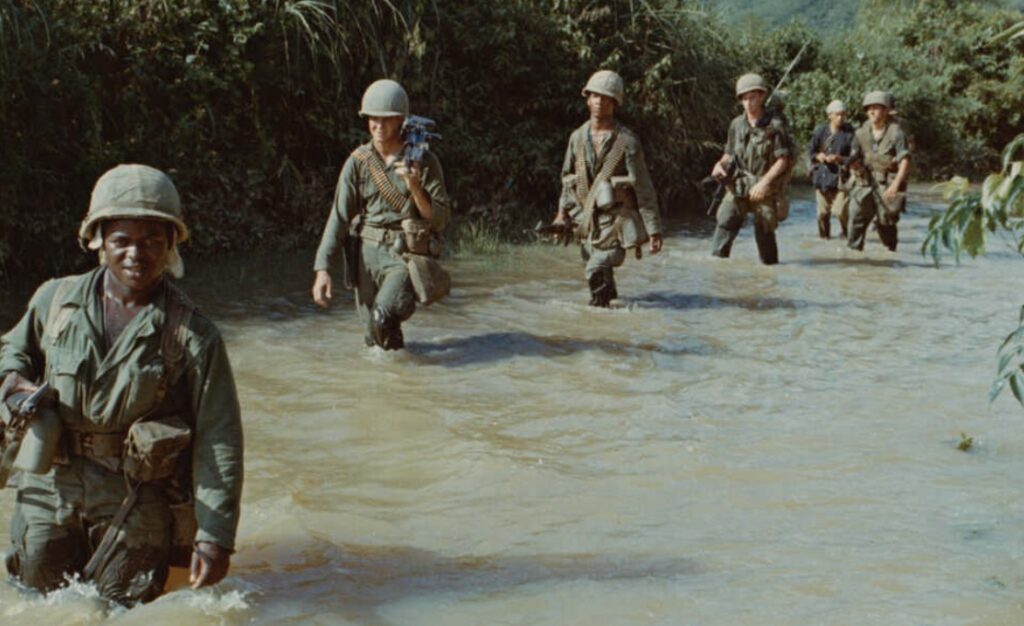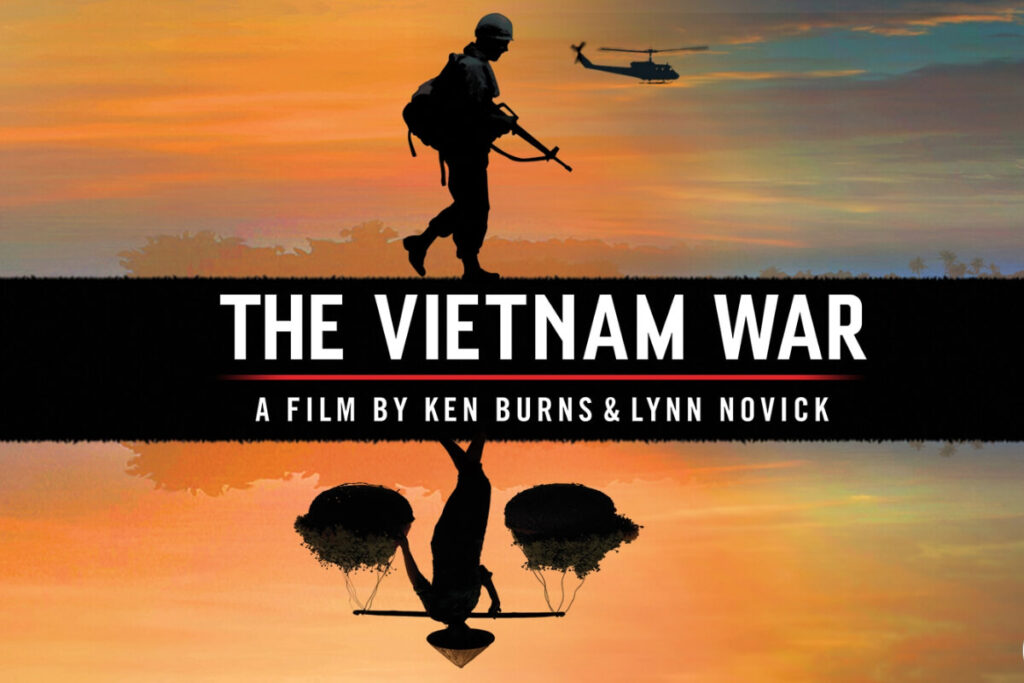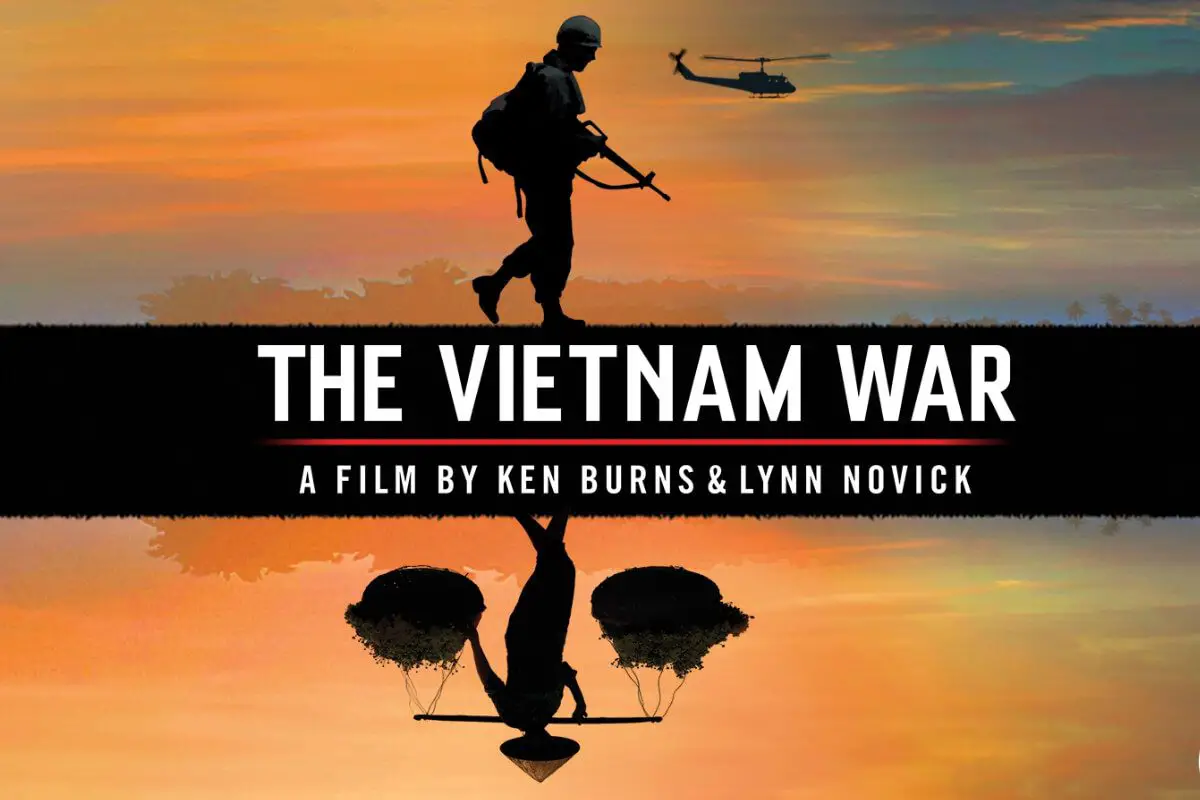Recently, just under a mile from my residence in Hanoi, Vietnam, locals discovered an unexploded bomb from the Vietnam War, or as the Vietnamese refer to it, the American conflict.
Even now, remnants like unexploded ordnance from this war surface, underscoring the conflict’s lasting impact. The Ken Burns documentary is a prime resource for those keen to delve deeper into the Vietnam War or conflict. Continue reading to discover the significance of this compelling documentary.
Table of Contents
- A Deep Dive Into The Vietnam War: The Ken Burns And Lynn Novick Documentary
- A Story Never Before Told On Film
- Human Dimensions Of The War
- The Vietnam War’s Lingering Shadows
- Where To Watch The Vietnam War: A Film By Ken Burns And Lynn Novick
- Related Questions
A Deep Dive Into The Vietnam War: The Ken Burns And Lynn Novick Documentary
The Vietnam War remains one of American history’s most contentious, debated, and painful subjects. It has been analyzed, dissected, and portrayed through countless films, books, and articles.
Yet, a singular work stands out for its thoroughness, depth, and nuance: “The Vietnam War,” a documentary by Ken Burns and Lynn Novick. This series is arguably your best starting point if you aim to understand the Vietnam War comprehensively.
The Craftsmanship Of Ken Burns And Lynn Novick

Ken Burns has earned a reputation as one of the most accomplished documentarians of our time, having produced riveting series on topics as varied as the Civil War, Jazz, and Baseball. Alongside co-director Lynn Novick, Burns embarked on a monumental task of weaving an intricate tapestry of the Vietnam War, shedding light on its many facets.
A Story Never Before Told On Film
What sets “The Vietnam War” documentary apart is its coverage’s sheer depth and breadth. Over ten episodes and 18 hours, the series dives deep into the chronicles of the war, touching upon aspects that often escape mainstream narratives.
Instead of a one-sided view, the documentary offers a panoramic vision of a war that spanned decades and impacted multiple generations.
Human Dimensions Of The War
At the heart of Burns and Novick’s documentary is its humanistic approach. By interviewing nearly 80 witnesses, the series paints a diverse and intimate portrait of the war’s human dimensions:

- American Soldiers And Dissenters: The documentary doesn’t just focus on the soldiers’ experiences on the battlefield and delves into the lives of Americans who vehemently opposed the war. It captures the essence of a nation in turmoil, torn apart by ideological, political, and generational differences.
- Vietnamese Combatants And Civilians: Perhaps the most remarkable feature of this documentary is its balanced portrayal. It provides a voice to the Vietnamese people, both from the North and the South, civilians and combatants. Their stories, filled with pain, resilience, and hope, provide a more rounded perspective, breaking away from the traditionally Western-centric narratives.
Having lived and worked in Hanoi for an extended period and journeyed across Vietnam, I’ve witnessed the war’s enduring impacts. From war veterans bearing the scars and disabilities of battles fought during the Vietnam War to children suffering from the after-effects of Agent Orange, the remnants of this conflict are palpable.
As Americans, it’s easy to forget that every war has two narratives, with victims on both sides. While we recognize our troops, many of whom still grapple with diseases or PTSD from the war’s traumas, we must also acknowledge the Vietnamese enduring similar struggles.
What sets the Ken Burns documentary apart is its thorough examination of these nuances, shedding light on the complexities of this conflict and revealing the depth of its devastation on multiple fronts.
A Complex Conflict Unveiled
Calling the Vietnam War ‘complicated’ is an understatement. “The Vietnam War” documentary series takes viewers on a chronological journey, revealing the intricate dynamics of the conflict:
- The geopolitical tug-of-war during the Cold War era.
- The cultural and societal shifts in America and Vietnam.
- The military strategies and the brutal realities of guerrilla warfare.
- The diplomatic maneuverings and their implications.
By addressing these complexities, Burns and Novick offer viewers a chance to learn and understand the Vietnam War.
The actual cost of a conflict like the Vietnam War is incalculable. Ken Burns and Lynn Novick endeavor to deepen our understanding of this tumultuous period through their work. This documentary’s strength lies in its comprehensive exploration, making it a must-watch for anyone aiming to grasp the intricacies of the Vietnam War.
The Vietnam War’s Lingering Shadows
Decades have passed since the fall of Saigon, yet the echoes of the Vietnam War still reverberate today. Many veterans continue to grapple with physical and emotional scars, while the Vietnamese landscape bears witness to the war’s environmental aftermath. Moreover, the war has impacted U.S. foreign policy, military strategies, and even pop culture.
Where To Watch The Vietnam War: A Film By Ken Burns And Lynn Novick

“The Vietnam War,” a documentary directed by Ken Burns and Lynn Novick, is a part of the PBS documentary series. You can purchase a copy or stream it via PBS Documentaries on Prime to view it. Additionally, the documentary might be available on platforms like Netflix or for purchase on Amazon.
“The Vietnam War” by Ken Burns and Lynn Novick is more than just a documentary; it’s an experience. It prompts introspection, challenges preconceptions, and urges viewers to engage deeply with a multifaceted historical event.
This series is indispensable for those genuinely keen to understand the Vietnam War’s intricacies and profound implications. As we look back at history, it’s paramount to approach it with an open mind and heart, and this documentary series offers just the platform for such exploration.
At A Bus On A Dusty Road, we talk about history, travel, life, sailing, and ex-pat living. We are all about “Living Life As A Global Citizen.” We explore social, cultural, and economic issues and travel.
We would love to have you be part of our community. Sign up for our newsletter to keep up-to-date by clicking here. If you have any questions, you can contact me, Anita, by clicking here.
Listen to our Podcast called Dusty Roads. You can find it on all major podcast platforms. Try out listening to one of our podcasts by clicking here.
Subscribe to our A Bus On A Dusty Road YouTube Channel with great videos and information.
Related Questions
What U. S Companies Profited During The Vietnam War?
During the Vietnam War, many U.S. companies profited from the Vietnam war. Some of these companies were heading toward bankruptcy, but their involvement in the Vietnam war helped make them profitable. For many others, they earned millions of dollars each year in profits from the war that helped ensure they continued to be successful or even thriving companies.
By clicking here, you can discover What U. S Companies Profited During The Vietnam War?
Could America Have Won The Vietnam War?
America could not have won the Vietnam war as it never won the hearts and minds of the Vietnamese people. The Americans even had difficulty controlling the Vietnamese people in Southern Vietnam, as many were disillusioned with the Southern Vietnamese government. Ho Chi Minh, the leader of North Vietnam, fully understood that another foreign power would not control the Vietnamese heart and soul.
By clicking here, you can discover Could America Have Won The Vietnam War?
What Was The Main Reason For US Involvement In Vietnam?
The main reason for the involvement of the United States in the Vietnam War was the belief in the Domino theory; the Domino theory was a principle used to describe the effects on the world if Vietnam fell to communism. The idea was that if Vietnam became communist, the rest of Asia, New Zealand, and Australia would eventually become communist. At the time, American leaders felt they were fighting for the survival of democracy throughout the world.
By clicking here, you can learn more by reading What Was The Main Reason For U.S. Involvement In Vietnam?

